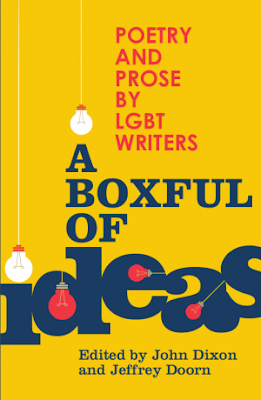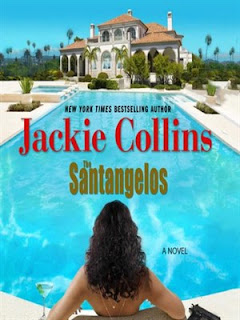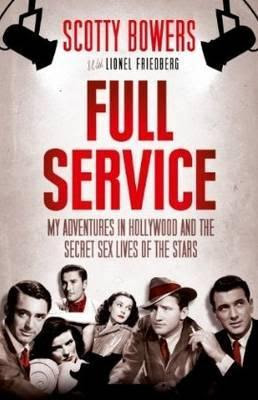Category: DavidGeeBlog
What I’m reading: a Superstar’s busy – and varied – Sex life
 |
| Grace Kelly: (not) ‘the ice princess’ |
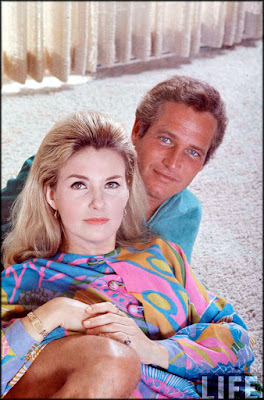 |
| Newman & Woodward: the ‘Golden Couple’ |
 |
| Newman and Brandon de Wilde in HUD (1963) |
What I’m reading: A box of gay goodies
A BOXFUL OF IDEAS
RIP: Helen Lambert Gee – a fine artiste, a true friend
RIP
What I’m reading: Gore Vidal – America’s gay pioneer
Gore Vidal: THE CITY AND THE PILLAR
Continuing my intermittent trawl through through the ‘classics’ of modern gay literature, I’ve just re-read this novel from 1948, which I think is the very first ‘home-grown’ gay novel in the US. The literary establishment – and the critics – were vicious in their condemnation of Vidal. He rewrote the book in 1965 with major changes and this version, still reprinting today, has sold millions. The revised ending is less melodramatic than the original (murder) but the hero’s “hell-hath-no-fury-like-a-wronged-faggot” action seems equally out-of-character.
Vidal’s writing, especially in the later volumes of his American History series, became verbose and flatulent, almost a parody of Henry James. The City and the Pillar, like many early novels from writers in the 40s and 50s (and still all too often today), shows clearly the influence of F. Scott Fitzgerald: lean, finely-honed prose with a kind of muscular elegance, which works supremely well for this chronicle of the coming-of-age and the coming-out of a gay high-school senior during WW2 and its aftermath. Jim Willard’s briefly reciprocated love for a fellow student casts a shadow over the next decade of his life as he becomes a sailor, then a tennis-coach (and kept boy) in Hollywood and New York.
Scenes in NY and LA offer early glimpses of the archness that were to characterise the author’s public persona in later life and reach an apotheosis in Myra Breckinridge and Myron, the two-volume high-octane farce which for many readers is at once his best and his worst writing. Ronald Shaw, the closeted actor who keeps Jim for a while, an on-screen macho-man who is privately needy and insecure, calls Rock Hudson to mind although the time of the story means he’s more likely to be based on Randolph Scott or perhaps another version of the author. Paul Sullivan, the writer Jim comes close to loving, doesn’t suggest Truman Capote or Tennessee Williams, the ‘obvious’ candidates for a gay author, but again he may just be a twist on Gore, as Jim obviously is. In fact there are many moments that seem to demonstrate how a writer chops his own life into pieces to provide the basis for different characters, although in his autobiography Vidal insists his protagonists are not based on real people except for Bob Ford, Jim’s lost love, and a woman ‘inspired’ by Anais Nin, whom Gore claims to have romanced. Many scenes – and many of the characters – could as well belong to New York or Los Angeles of today as to the 1940s. Except for some clunky conversations exploring the ‘Nature Of Homosexuality’ which must have seemed insightful as well as daring in 1948, this is a lot less dated than other gay novels of the era.
The sex scenes are almost as discreet as Mr Forster’s – there’s nothing as lurid or as dazzling as Gore would later concoct for Myra/Myron. But overall The City and the Pillar is not only an outstanding piece of gay fiction (better than many that were to come after Vidal opened the floodgates) but also one of the best novels of its era, different from but as exquisitely readable – still – as the early works of Capote and Carson McCullers.
In later life Gore overdid the bitchiness and bitterness, perhaps disappointed by his failure to make it as a realm presence in US politics, the role he most craved. But his output as novelist, historian and essayist was prodigious. Other writers may have left a bigger footprint (Roth, Mailer, Updike, Irving,), but Vidal deserves to admitted to the literary pantheon. He wouldn’t thank me for this, but he is probably, as Somerset Maugham is supposed to have said of himself, “in the very front rank of the second-raters”.
RIP, Jackie: “tasteless and flashy” to the end!
Jackie Collins: THE SANTANGELOS
 |
| RIP Jackie: will she write from beyond the grave? |
Ms Collins writes her own kind of prose, which almost defies criticism. An undercover cop “was Puerto Rican and verging on pretty, in a tough ‘don’t fuck with me’ kind of way.” The bar on this sort of writing has been lowered rather than raised by la Collins during her long reign as the Queen of Hollywood fiction. She was famous for her raunchy sex scenes, all written with sledgehammer subtlety in fifty shades of scarlet and often unintentionally (or intentionally?) comic: “Men got off on her nipples; in full bloom, they were quite spectacular.”
Harold Robbins, without any grand aspirations, was a much better writer: The Carpetbaggers and The Adventurers had all the greed and gossip of a Collins novel, but his style had a kind of Mickey Spillane crispness and grandeur. Jackie Collins occasionally reaches for crisp but she cannot (couldn’t) do grand.
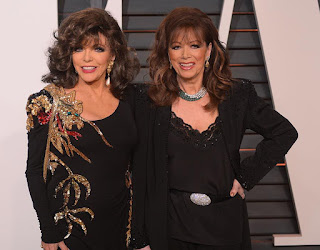 |
| The fabulous Collins sisters – only Joan is left now |
Two weeks ago I reviewed a Southern Gothic thriller that was one of the best books I’ve read in the last few months. The Santangelos is far and away one of the worst: scrappily plotted, poorly written and under-edited. Total tosh, in fact, but – although I skimmed through chunks of it – I had to read through to the end! Jackie Collins had her own kind of magic: RIP.
Selling books. It’s better for booksellers than for authors.
Paradise Press has received an order for a single copy of The Bexhill Missile Crisis from a leading London bookshop. The store demands a 35 percent discount on the retail price (£2.80 off £7.99). They expect us (me) to pay the postage (another £1.68 first class). The cost of the book from the printer works out at £3.61 per copy. Totting that up, you will see that I make a loss of 10 pence on this sale (that’s 15 cents for US readers) – not including the cost of a jiffy bag and wear-and-tear on my shoes getting to the post office. If I mail it second class I can actually make a profit of 7 pence (11 cents) – about the price of the jiffy bag!. Bulk orders allow me a slightly better margin, as does a sale direct from the Paradise Press website.
I am paying people to read my book! Funny old world, isn’t it? I could, of course, raise the book price, but £7.99 seems a fair (and competitive) price for a 215-page novel.
Do all authors have this problem?
What I’m reading: dishing the dirt on Hollywood royalty (and ex-kings)
In Chapter One of this bonk-and-tell autobiography the author gets a blowjob from Walter Pidgeon. I, naturally, fainted at this point but made a quick recovery and read on with mounting enthusiasm!
A farmboy from Illinois, Scotty Bowers headed for Los Angeles after his demob from the Marines at the end of World War Two (having seen some grim action in Guadalcanal and Iwo Jima). Working the evening shift at a gas station on Hollywood Boulevard, he was soon running a lucrative sideline as a “call-boy” (he calls it “tricking”) with well-heeled Angelinos, most of them in the movie business – both men and women (he claims to prefer straight sex). As well as turning tricks himself, he also set up many another hard-up young man (or woman) with movie people great and small. Then as now on Sunset Strip, straight guys willingly turned gay tricks for a few dollars of beer money.
 |
| Randolph Scott and Cary Grant, a Hollywood ‘Golden Couple’? |
It’s all yesteryear tittle-tattle, mostly set during the Fifties and Sixties. Everybody mentioned is safely dead and unable to start libel proceedings. But there is some juicy stuff here: pool-party orgies at Cole Porter’s house, threesomes with Cary Grant and Randolph Scott, bondage parties with John Carradine. Somehow we’ve always sensed that our stage and screen idols have feet of clay; Scotty Bowers wants us to know that a proportion of their off-screen time is spent wallowing in mud. Charles Laughton and Tyrone Power had particularly extreme tastes.
 |
| The Duke and Duchess of Windsor, better in bed than on the throne! |
Many names here are familiar to the gay gossips: Noel Coward, Montgomery Clift, James Dean. I was only occasionally surprised by his revelations: moving on from deceased Hollywood ‘royalty’ to deposed royals, he says he bedded both the Duke and Duchess of Windsor and fixed Edward up with call-boys and Wallis with girls; ‘Eddy’ was “a damn good lover” (not according to Thelma Lady Furness, one of Eddy’s earlier ladyfriends); and Wally “really knew what she was doing,” said one of the call-girls. Wow. At a time when pornography was illegal in the US (hard to imagine, isn’t it?) he arranged a private showing of ex-King Farouk’s extensive personal collection for Dr Alfred Kinsey and his fellow researchers.
 |
| Rita Hayworth, a famous beauty and famously stingy |
Not all the scandal is sexual: Rita Hayworth was too stingy to buy her out-of-work brother new tyres for his beat-up truck. And Scotty reminds us just how terrible was William Holden’s decline (one of the non-gay clients) into the farther reaches of alcoholism.
Like the Collected Works of Kitty Kelley, Full Service is written (ghost-written in this case) in a gushing Louella Parsons prose style straight out of the “fanzines”; gushing enough to read at times like Barbara Cartland (who would churn in her urn at the comparison, I’m sure). I feel slightly ashamed to have wasted a few hours reading this tawdry drivel, but – oh dear – it’s an undeniably compelling read. That said, I did find myself wondering how much of it is the sleazy truth and how much is money-minting fantasy.
David Gee makes Headline News!
The Bexhill Missile Crisis has made it into the pages of The Argus, Brighton’s daily paper.
Click on the link below:
What I’m reading: Wild about Wilde
The rise and fall of Oscar Wilde is an oft-told tale, but Fryer’s very readable style and admirable economy of words offers a enjoyable ‘overflight’ of the familiar ground of Oscar’s fatal friendships with Alfred Douglas and the Piccadilly rent-boys they shared. He quotes Wilde’s most painful letter from Reading Gaol to his old chum Robbie Ross: “I curse myself night and day for my folly in allowing him [Bosie] to dominate my life.” And yet he resumed this dangerous liaison after his release, causing Constance, his wife, to cut off the allowance she was generously paying him. He died, as we know, penuriously, losing the battle with the wallpaper in a Parisian hotel.
Gide’s story may be less familiar. He seems to have been massively up himself, as we would say today but, like Oscar, he was a prolific letter-writer and a sharp observer of humankind. After his first meeting with Lord Alfred in wintry Algiers in 1895, Gide described him in letters to his mother as ‘Byronic [and] devoured by an unhealthy thirst for infamy‘. With considerable prescience he also writes: ‘If Wilde’s plays in London didn’t run for 300 performances, and if the Prince of Wales didn’t attend his first nights, he would be in prison, and Lord Douglas [sic] as well‘. There’s an element of hypocrisy in all this: Andre was only too keen to have some of Bosie’s teenage Arab rent-boys passed on to him.
Gide married his adored cousin Madeleine: a sexless and ultimately loveless union. Over time he came to treat her as shabbily as Oscar did Constance, flagrantly pursuing rent-boys on the streets of Paris and even fathering a child with a mistress. It was easy 120 years ago – it still is – for a woman to marry a man not knowing he was actually gay. Wilde and Gide’s treatment of their wives would be deemed marital cruelty today.
Jonathan Fryer has clearly done scrupulous research, but he is not overawed by the eminence of the writers he is exhuming and avails himself of a few opportunities to take the piss. Of Oscar’s own account of the ‘frenzy’ with which he completed the writing of his banned play Salome after listening to a gypsy band on a Parisian boulevard, the biographer comments: ‘Like many of Oscar’s stories, this is entertaining nonsense.’ He reminds us of Wilde’s famous pronouncement (to Gide in Algiers) that “he had put his genius into his life but only his talent into his works.“
Was Oscar Wilde a genius? Clearly he was a gifted playwright, but his comedies are not in the same league as Shakespeare’s. You could make a case for Moliere and Coward being just as brilliant satirists of their times, even Joe Orton and Alan Ayckbourn, but do any of them deserve to be called geniuses? Genius is a word we should perhaps use more sparingly.
Gide lived twice as long as Wilde, dying at 82 in 1951. After selling his daring novels and travel books in pitifully small quantities for many years, he finally broke through to the big time and was even awarded a Nobel Prize. Oscar won no prizes and was awarded only infamy, but his plays have already given him a degree of immortality – something that may not happen to Monsieur Gide.


